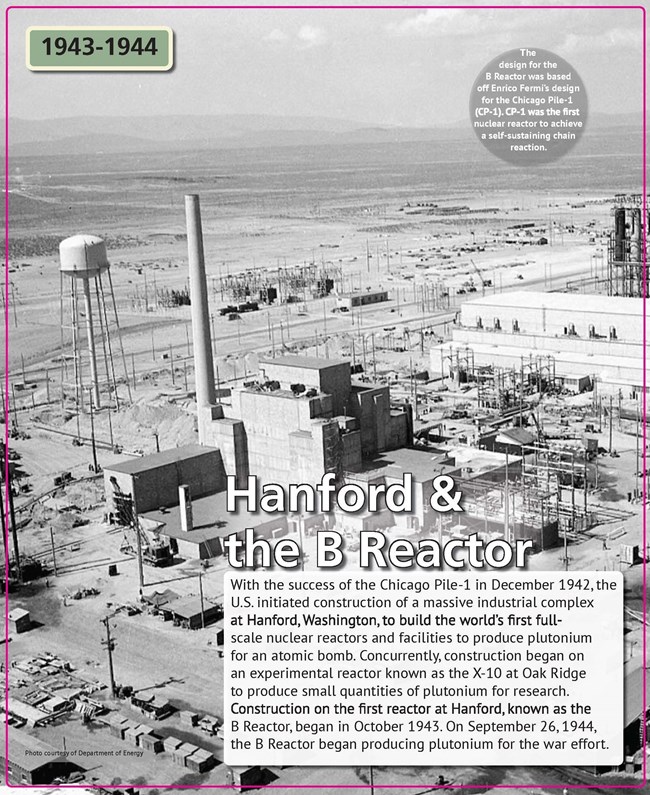Last updated: January 24, 2024
Article
B Reactor History Room: Hanford & the B Reactor

See exhibit panel for specific image credits.
Main Text
At the top right, text reads: “The design for the B Reactor was based off Enrico Fermi’s design for the Chicago Pile-1 (CP-1). CP-1 was the first nuclear reactor to achieve a self-sustaining chain reaction.”
A title in the bottom center reads, “Hanford and the B Reactor.”
Text continues: “With the success of the Chicago Pile-1 in December 1942, the U.S. initiated construction of a massive industrial complex at Hanford, Washington, to build the world’s first full-scale nuclear reactors and facilities to produce plutonium for an atomic bomb. Concurrently, construction began on an experimental reactor known as the X-10 at Oak Ridge to produce small quantities of plutonium for research. Construction on the first reactor at Hanford, known as the B Reactor, began in October 1943. On September 26, 1944, the B Reactor began producing plutonium for the war effort.”
Exhibit Panel Description
An aerial black-and-white photograph of Hanford facility, dated 1943 to 1944, shows the B Reactor building surrounded by numerous outbuildings and support facilities that no longer exist.
Visit This Exhibit Panel
In-person visitation of the B Reactor is only authorized on guided tours offered by the Department of Energy.
